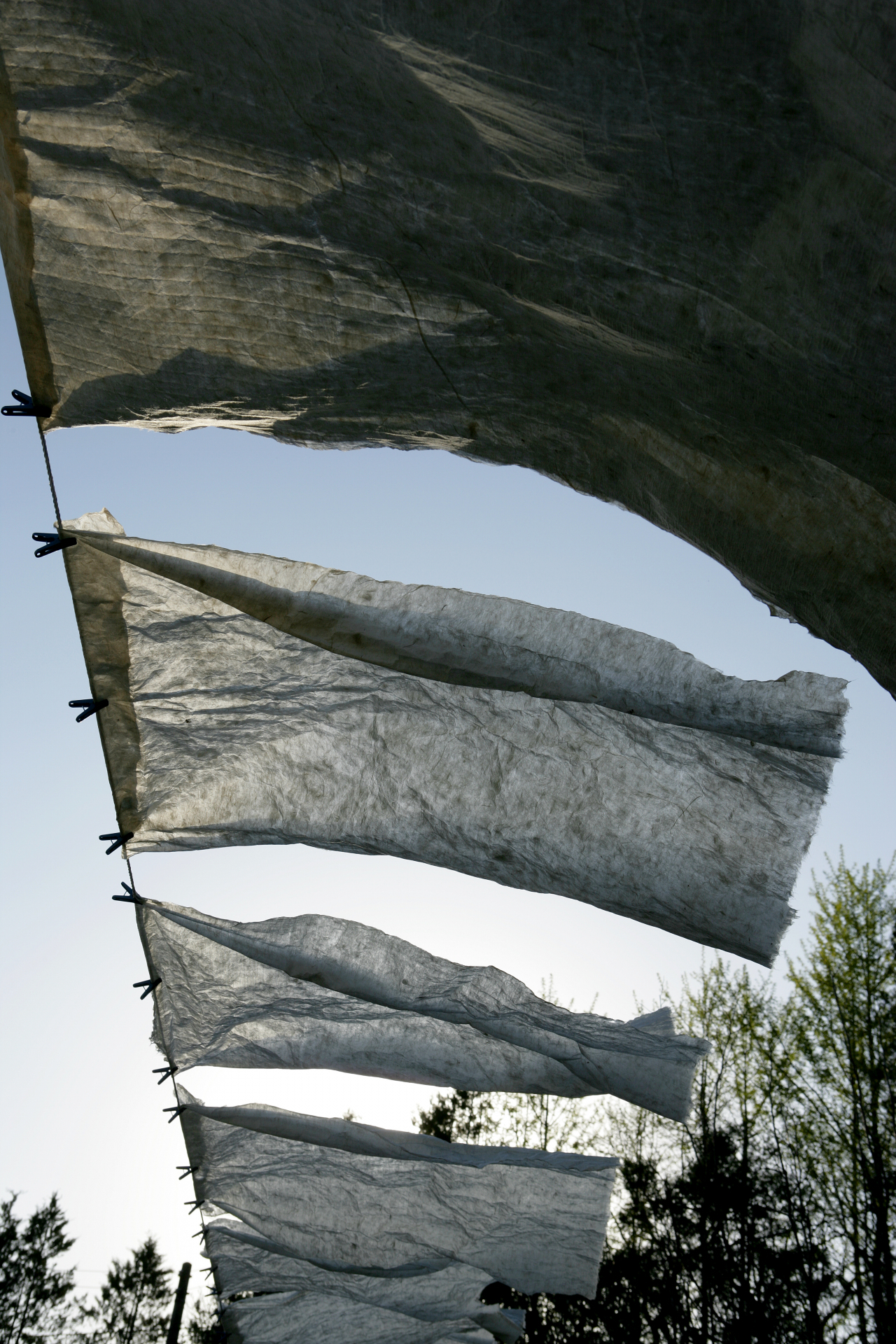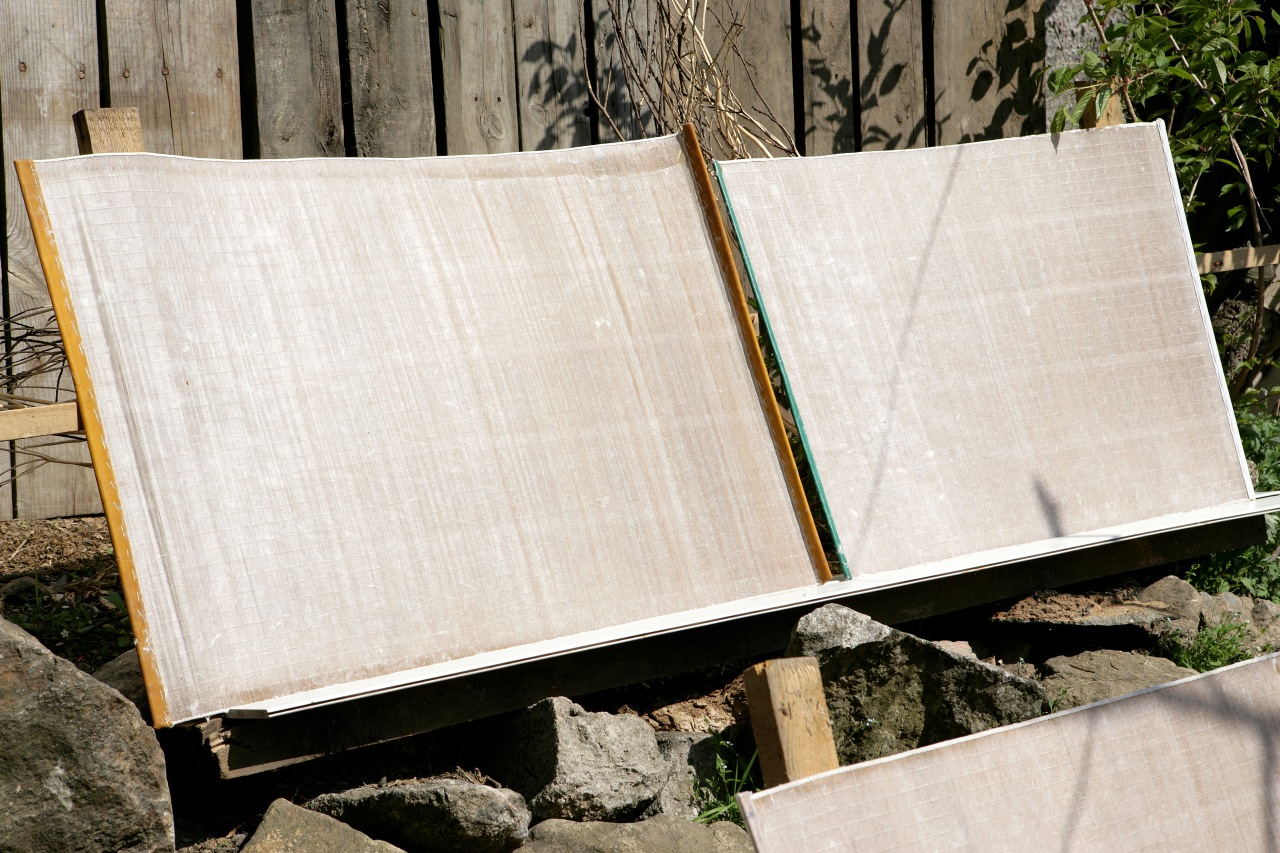CHA seeks to register hanji as UNESCO Intangible Cultural Heritage
By Kim Hae-yeonPublished : July 14, 2023 - 15:45

Efforts to have Korea's hanji, traditional paper handmade from mulberry tree bark, registered as UNESCO Intangible Cultural Heritage have officially commenced, according to the Cultural Heritage Administration Friday.
At a Cultural Heritage Committee meeting held Thursday, CHA selected the provisional title, "Hanji's traditional knowledge and technology," to use when applying to inscribe the paper on UNESCO's Representative List of the Intangible Cultural Heritage of Humanity next year.
In the past, hanji was also referred to as "baekji," because of the multi-step process of its making, including boiling the inner bark of the mulberry tree, rinsing it, straining it, pounding it, separating the fibers and drying it before it takes its final form. It was in "baek" -- the hundredth touch or treatment -- that the paper was considered finished.
Hanji making is designated national intangible cultural heritage and the government recognizes masters with the title of "hanjijang."
The hanji making process not only showcases exceptional craftsmanship but also reflects the sense of community valued in Korean culture, according to CHA.
"Although similar cultures of mulberry paper are shared among Korea, China and Japan, we have a unique process and uses for hanji," Lim Seung-beom, a senior researcher at the CHA's world heritage division told The Korea Herald.
Lim also mentioned cases where museums around the world used hanji in restoration works. In 2017, the Louvre Museum in Paris used hanji to restore a 19th-century desk drawer handle.

Meanwhile, China's xuan paper and Japan's washi paper were enlisted as UNESCO Intangible Cultural Heritage in 2009 and 2014, respectively.
The CHA plans to complete and submit hanji's application to UNESCO by the end of March next year.
The final decision will be made at the 21st Intergovernmental Committee for the Safeguarding of Intangible Cultural Heritage, scheduled to take place in 2026.
South Korea currently has 22 entities on UNESCO's list of Intangible Cultural Heritage, beginning with Jongmyo Jerye and Jongmyo Jeryeak in 2001 to the recent addition of talchum -- Korean mask dance -- confirmed last year.




















